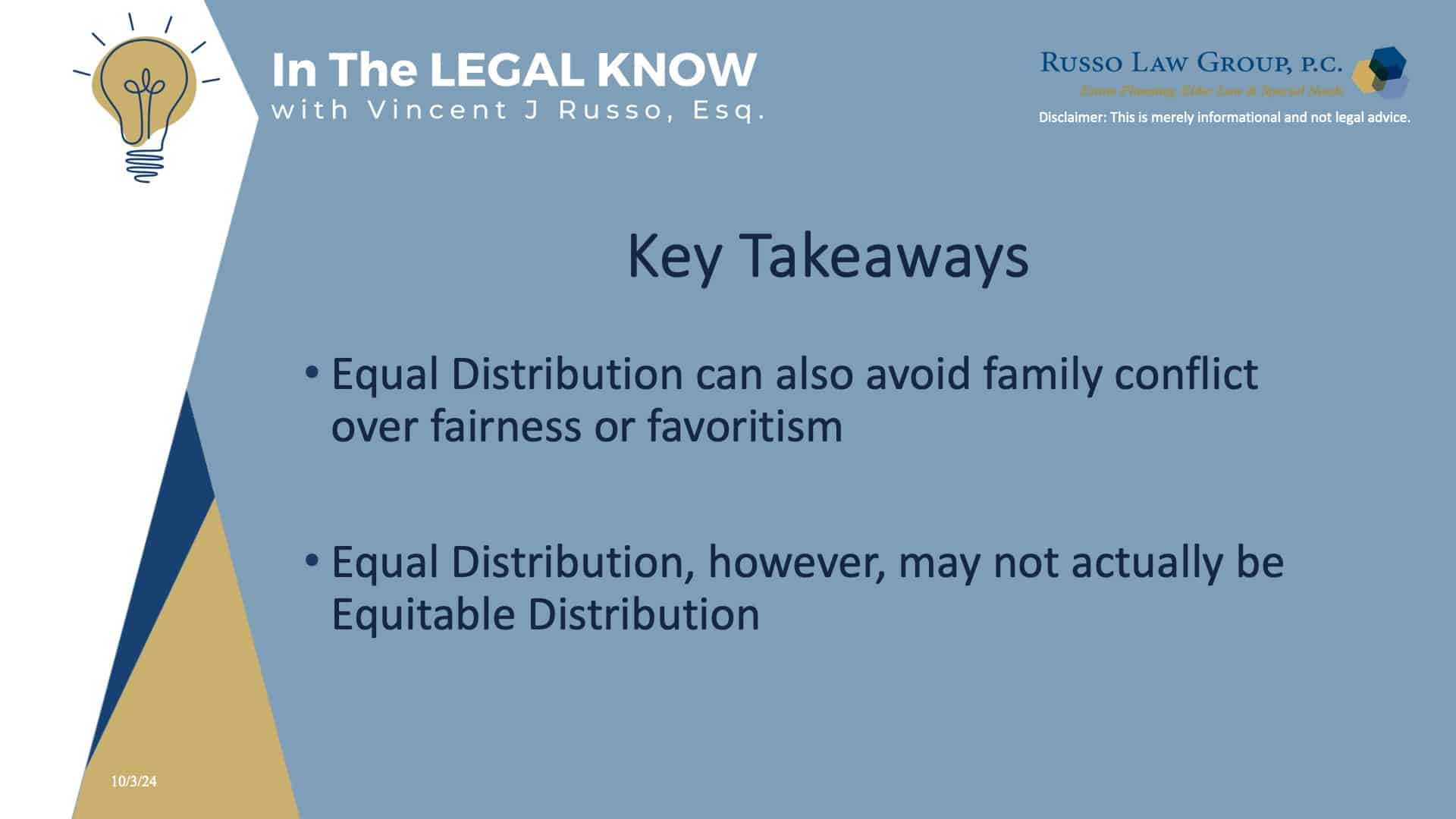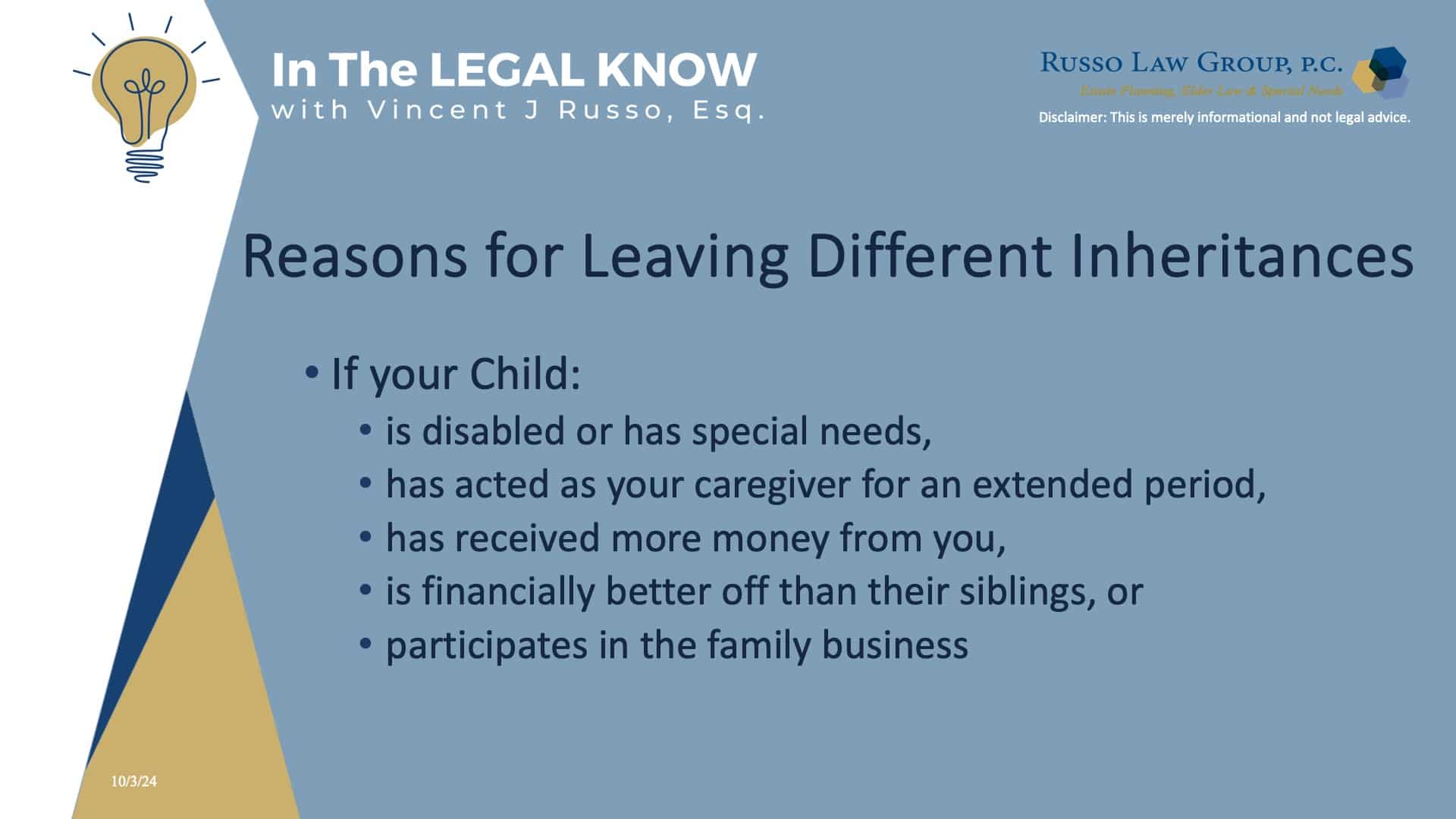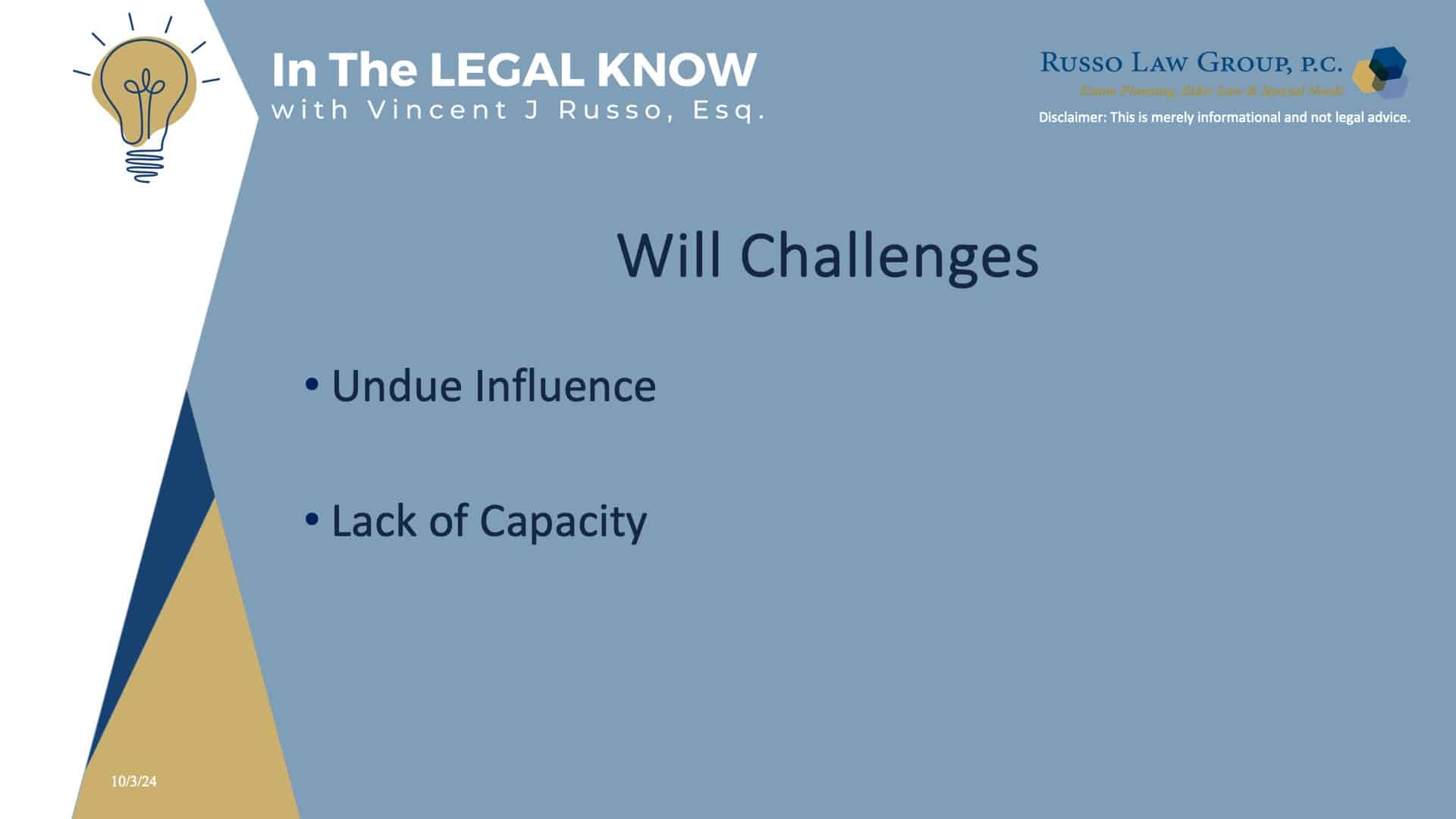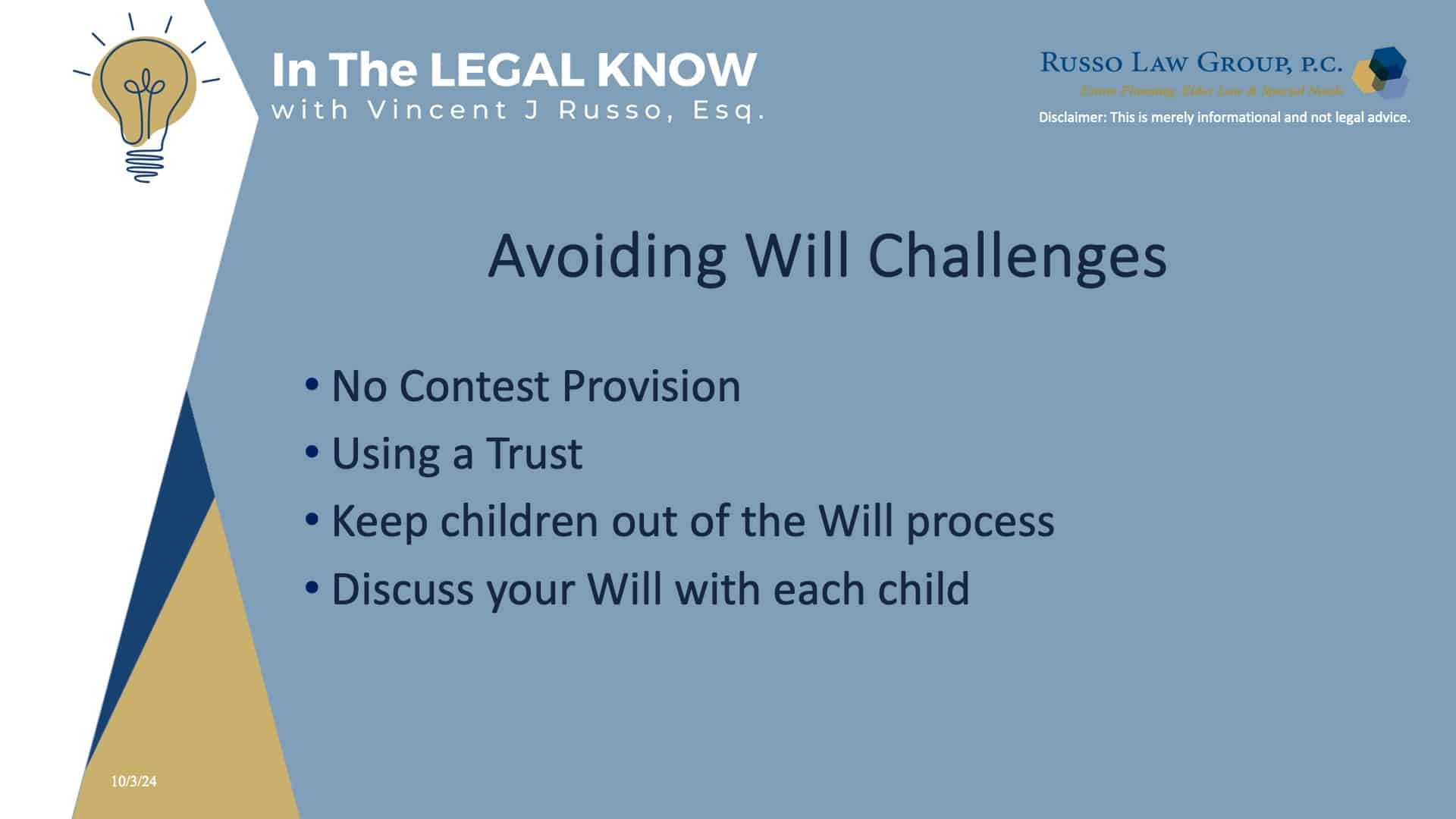Delve into the significance of resolutions, their origins, and actionable advice for making meaningful life improvements this year.
Should you leave assets equally to your children?
The easy answer is YES, but it really depends on your desires and the circumstances of your situation. Dividing up an estate among offspring can be a tricky business.
This originally aired on the Catholic Faith Network’s show CFN Live: https://youtu.be/R7x2k6Tob-c

There are many situations in which the obvious option—an equal division of assets among children—is the right choice. However, giving each child an identical inheritance might not make sense in some families.
As estate planning attorneys point out, there is a difference between leaving an equal inheritance, where each child receives the same amount, and an equitable inheritance, where each child receives what’s fair, given their circumstances.
So, consider: when does it make sense to leave each of your children the same inheritance, and when does a different arrangement make more sense? How might each choice affect sibling harmony?
Equal Inheritance vs Equitable Inheritance
The starting point is deciding how much you want to leave each of your children, and then in what manner.
Key Takeaways
- Equal distribution can avoid family conflict over fairness or favoritism.
- Equal distribution, however, may not actually be equitable, especially if some children have been favored financially before or are in financial difficulty.
What if a parent wants to leave assets to their children in unequal amounts?
There are several reasons a parent may want to leave different inheritances to their children.
For example, if one of the children:
- is disabled or has special needs,
- has acted as your caregiver for an extended period,
- has received more or less money from you in the past,
- is financially better off than their siblings, or
- participates in the family business.
What are some issues if you leave assets in unequal amounts to your children?
If you decide not to divide your assets equally among your children, understand that you are putting your plans—and your children—at risk of going through a lawsuit.
How significant is this risk, and how likely is it that the result will be a different division of assets than the one you desired? Children can sue to contest a will, but with careful estate planning, you can help mitigate challenges.
The first step is to draft your will with the assistance of an experienced estate planning attorney while you’re of sound mind and memory and free from undue influence by any child.
There are basically two grounds for a child to challenge a will:
- Undue influence: A child claims you were manipulated into making decisions you wouldn’t have made otherwise. Since you won’t be there to defend yourself, it’s important to prevent successful claims.
- Lack of capacity: A child argues you didn’t understand your decisions due to age, illness, or other reasons. They may also claim fraud or improper witnessing of your signature.
How can you protect your wishes?
There are ways to reduce the chances of a less-favored child contesting your will, and ways to reduce their chances of winning if they do:
A no-contest clause combined with a nominal gift can discourage challenges. This clause states that anyone who contests the will forfeits their inheritance. The nominal gift ensures the child has something to lose by challenging.
While unpalatable, this may be the best way to keep your will intact. Note: enforceability varies by state, so check local laws before including such clauses.
Estate-planning experts also recommend:
- Including a no-contest provision
- Using a revocable living trust
- Excluding all children from the will-writing process to prevent undue influence claims
- Discussing your will with each child to avoid surprises and explain your reasoning
It’s possible that children may settle disputes among themselves, altering your original will’s distribution.
What is the bottom line?
The most important thing when dividing an inheritance is remembering it is your money and your right to decide how to distribute it.
An equal inheritance makes the most sense if gifts or support throughout life have been minimal or substantially equal, and no child has provided significant custodial care.
When there is actual or perceived inequality, the risk of legal challenges increases substantially. You must weigh this risk against your goals, considering your children’s personalities and relationships. Careful estate planning may not be easy, but it is essential.
We hope you found this article helpful. Contact our office today at 1 (800) 680-1717 to schedule an appointment and discuss what makes sense for you and your loved ones.








Comments (0)